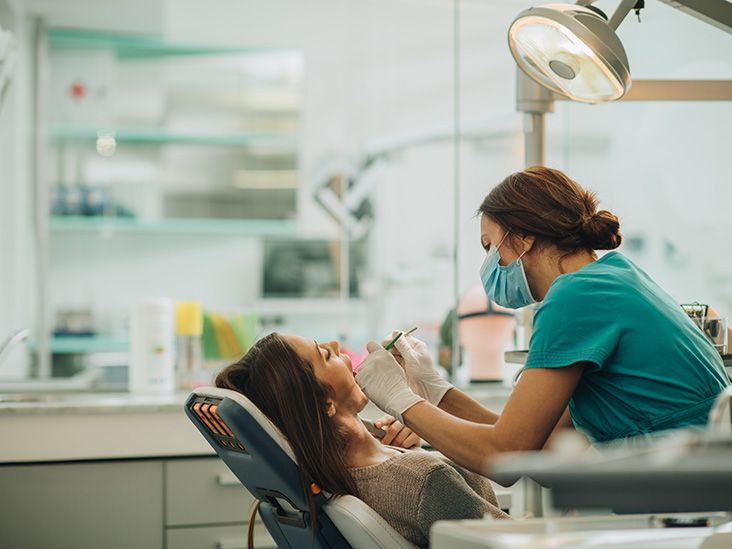Common Inquiries Regarding Oral Veneers Addressed
Dental veneers have actually become a progressively popular option for those wanting to enhance their smiles, yet many individuals stay uncertain about numerous facets of their usage. Trick inquiries commonly occur relating to the application process, longevity, and potential risks related to these cosmetic enhancements. Moreover, the distinction in between porcelain and composite veneers can significantly influence one's choice. As we explore these common inquiries, it comes to be important to take into consideration not just the benefits yet additionally the effects of opting for oral veneers in quest of an extra confident look. What aspects should one weigh prior to making such a choice?
What Are Dental Veneers?
Dental veneers are slim, customized shells crafted from porcelain or composite material that are made to cover the front surface area of teeth. These oral prosthetics offer both aesthetic and functional objectives, providing an option for different dental blemishes, consisting of discoloration, chips, voids, and misalignment. By adhering to the teeth, veneers can substantially enhance the overall look of a smile, developing a much more consistent and attractive appearance.
Porcelain veneers are especially favored for their all-natural clarity and stain resistance, making them an optimal selection for individuals looking for lasting results. On the other hand, composite resin veneers are normally cheaper and can be used in a solitary see, but they may not use the exact same longevity as porcelain choices.
The choice to select dental veneers frequently originates from a need for visual enhancement, but individuals must additionally take into consideration elements such as the long life of the material, maintenance needs, and the potential requirement for tooth decrease (Veneers). Eventually, oral veneers represent a functional and effective service for accomplishing a glowing smile, dealing with specific aesthetic needs while promoting confidence and self-esteem
Exactly How Are Veneers Applied?
The application process for veneers needs mindful planning and accuracy to ensure ideal results. The procedure normally begins with a detailed appointment, where the dentist reviews the client's dental wellness, discusses wanted outcomes, and identifies the appropriate sort of veneers, whether porcelain or composite resin.
Once the treatment plan is established, the dental practitioner prepares the teeth by eliminating a thin layer of enamel, normally about 0.5 mm to 1 mm, to accommodate the veneer. This step is critical as it makes sure an appropriate fit and protects against the veneers from showing up large - Veneers. After preparation, impressions of the teeth are taken to create custom veneers that match the individual's special dental structure and visual choices
While the irreversible veneers are being made in a dental lab, short-lived veneers may be positioned to secure the ready teeth. When the long-term veneers are ready, the dental professional will thoroughly bond them to the teeth using a strong oral adhesive.
What Are the Benefits?

Additionally, veneers are known for their resilience and resistance to discoloring compared to natural teeth. Made from high-quality products such as porcelain or composite resin, they can official website keep their look for several years with correct care. This longevity makes them a practical financial investment in one's oral appearance.
In addition to visual enhancements, veneers can likewise add to improved oral wellness. By covering damaged or compromised teeth, they can i was reading this provide added assistance and defense, aiding to avoid further decay or deterioration. This safety element can decrease the demand for extra extensive oral procedures in the future.

How Much Time Do They Last?
With appropriate care and upkeep, oral veneers can last anywhere from 10 to 15 years, making them a resilient option for improving one's smile. The durability of veneers largely depends on the product used, the quality of the first positioning, and the patient's adherence to dental hygiene methods.
Porcelain veneers are recognized for their resilience and resistance to staining, commonly lasting closer to the 15-year mark when taken care of appropriately. Compound veneers, while much more cost effective, may require substitute earlier, typically within 5 to go to this website one decade as a result of their susceptibility to put on and staining.

Additionally, wearing a mouthguard throughout sporting activities or nighttime can provide added security. Ultimately, while veneers supply a significant visual improvement, their longevity is dramatically influenced by the commitment to correct dental treatment and routine appointments with a dental expert.
Are There Any Kind Of Threats?
Taking into consideration the transformative effects of dental veneers, it is essential to recognize the possible risks associated with their application. While veneers can enhance the appearance of teeth, the procedure includes the removal of a thin layer of enamel, which can enhance tooth sensitivity and vulnerability to degeneration.
One considerable danger is the opportunity of inappropriate placement or fitting, leading to pain, bite misalignment, or even damage to the underlying tooth structure. In addition, if the veneers are not preserved properly, they can come to be discolored or cracked with time, requiring substitute.
Clients might also experience allergic responses to the materials utilized in the veneers, particularly if they have level of sensitivities to certain oral composites. While veneers are durable, they are not undestroyable; extreme pressure from grinding or squeezing can lead to cracks.
It is crucial for individuals to seek advice from with a certified oral professional to evaluate their private threats and to follow aftercare directions diligently. By understanding these dangers, individuals can make educated decisions concerning their dental veneer therapy and guarantee the longevity and success of their improvements.
Verdict
In recap, oral veneers represent an important cosmetic remedy for boosting smiles, with factors to consider concerning their application, advantages, longevity, and connected dangers. Their effectiveness is affected by factors such as the selection of material, with porcelain offering exceptional durability compared to composite alternatives. Appropriate treatment and upkeep are important to make best use of the lifespan of veneers. Inevitably, educated decision-making relating to oral veneers can bring about acceptable visual results and enhanced dental wellness.
Oral veneers are thin, personalized shells crafted from porcelain or composite resin that are created to cover the front surface of teeth. After preparation, perceptions of the teeth are taken to develop customized veneers that match the person's special oral structure and visual preferences.
While the permanent veneers are being produced in an oral laboratory, short-lived veneers may be placed to secure the ready teeth. When the permanent veneers are ready, the dental expert will very carefully bond them to the teeth utilizing a solid dental adhesive. Ultimately, notified decision-making pertaining to oral veneers can lead to acceptable visual end results and improved dental health and wellness.